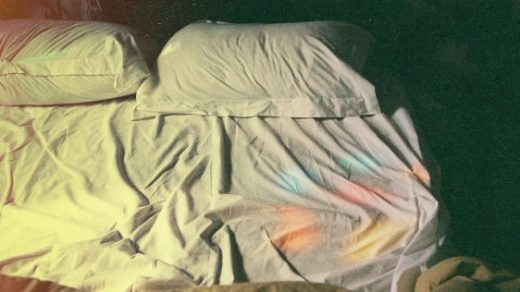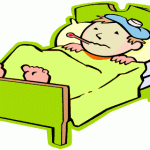5 Sleep-Habit Tweaks To Help You Adjust To Daylight Savings Time
When your clocks jump forward, you’ll lose a full hour of sleep and wind up with a 23-hour day. The shift may seem pretty insignificant, but it affects your daily circadian rhythms and hormone cycles for roughly a week, creating a feeling of lethargy, potentially worsening your sleep and lowering your immune function.
Research suggests that the seasonal “jump forward” into Daylight Saving Time typically leads to two main problems:
In addition, one 2008 study found an increase in sympathetic nervous-system activity–the body’s “fight or flight” response–and a decrease in parasympathetic activity–its “rest and digest” mode–meaning that the first few days after the time change may leave you feeling groggy and jet-lagged minus the actual air travel. And since your immune system may see a slight dip at the same time, you’re more likely to catch whatever flu or cold might be going around your office the week after setting your clocks ahead.
The good news is that there are a few small habit changes you can make, starting right now, to make up for the disruption to your sleep cycles. Here are a few.
1. Cut The Caffeine After Noon
Because caffeine increases sleep fragmentation (leading to lighter sleep, or waking up in the middle of the night after falling asleep), cutting back on your overall caffeine consumption is a smart move. If you can’t give up your morning coffee, then try to at least avoid caffeine after noon for a couple days leading up to the time shift.
2. Use Evening Meditation To Wind Down
To counter your body’s increased “fight or flight” response, try adding a 30-minute wind-down routine before bedtime in order to calm your nervous system. The few days leading up to Daylight Saving Time are a great time to test out a brief meditation practice to help you fall asleep faster: Just sit still and bring a gentle awareness to your breathing, without trying to force or change anything about the breath. Who knows? Maybe you’ll even stick with it long after your body has adjusted to the time change.
3. No Screens After Dinner
Blue light from electronic screens, including smartphones and TVs, has been found to reduce the body’s evening-time production of melatonin, the sleep hormone that tells the brain it’s bedtime. Instead, your body thinks it’s still daytime, and the brain’s sleep/awake switch remains in “awake mode.” So to get your brain primed to crank out the melatonin, you’ll need to turn off all screens after dinner and go to bed earlier. Instead of staying up late watching TV or going online, in the couple days before and after the time shift, opt for a device that isn’t back-lit (like a Kindle), or a paper book. Or just listen to a podcast or go for an evening walk.
4. Swap The Glass Of Wine For An Herbal Tea
You might like a periodic glass of wine after dinner, but try to avoid it the week before Daylight Saving Time kicks in. Instead, try brewing a cup of herbal tea with a blend of nervous system–calming ingredients like passionflower, catnip, hops, oatflower, valerian, or lemon balm. These can all help your brain kick into a state of rest and decreases the excess “fight or flight” mode caused temporarily by the time shift. Alcohol, on the other hand, may help you feel sleepy but actually creates lighter, fragmented sleep and disrupts the deep sleep you’ll need all the more the week after losing an hour.
5. Wake Up With Adaptogens, Not Energy Drinks
To boost your energy and mental clarity and give yourself a mild immune boost, you can try adding some adaptogenic mushrooms to your morning cup of coffee. I know it may sound a little odd, but there are some real physiological upsides to certain fungi (just take it from this Fast Company staffer who tried mushroom coffee for a month); personally, I like to use a blend of 30% reishi and 70% cordyceps.
The benefits come down to adaptogens, which is simply the name for a class of natural plants and fungi that promote homeostasis, helping the body adapt better under stress, supporting the adrenal glands, and temporarily boosting immune function. You can get a liquid tincture of adaptogenic mushrooms at most herbal pharmacies, or try the pill form from a reputable brand like Purica. The liquid forms are great because you can blend them right into either an ordinary coffee or a Bulletproof coffee, and they can help blunt the caffeine crash afterward, plus give you some longer-lasting energy without the potential risks of other stimulants like energy drinks or pills.
Many of us are grateful for the extra daylight but hate paying for it with lost sleep. But by slightly adjusting some of your daily sleep habits in the run-up to Daylight Saving Time, you can up your chances of staying energized and clear-headed despite the uncomfortable transition.
Dr. Dani Gordon (@AskDrDani) is a Canadian double board-certified medical doctor and mental performance trainer. She is also the cofounder of Zenbrainlab and Brain Coaches.
(37)














